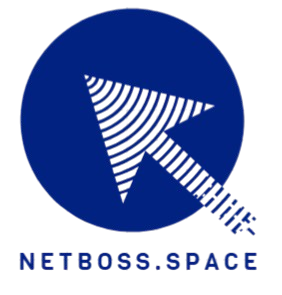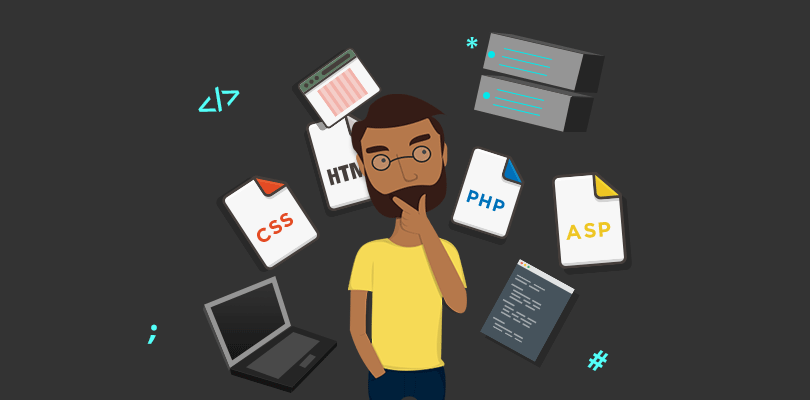What we offer
We build training around key principles: accessibility, depth and results. We have no fluff, no useless tasks and outdated methods. Only working skills tested by time and industry.
Training structure
Each of our courses is a full-fledged educational program built on the “from understanding to result” methodology.
Here is how the process is structured:
Immersion in the topic
At the start, you receive a theoretical base: what kind of technology it is, where it is used, how the ecosystem around it is structured.
Reinforcement through practice
Each block has real tasks. We do not give abstract examples. All exercises are taken from real-life company practices.
Micro-project after each module
You write mini-projects — from simple scripts to system components. This not only develops confidence, but also forms a portfolio.
Final work
At the end of the course — a full-fledged project that can be shown to the employer. Accompanied by a code review and personal feedback from the teacher.
Areas in which we teach
Web application development
We study HTML, CSS, JavaScript, frameworks (React, Vue, Laravel, Django). Emphasis on creating adaptive, fast, convenient web interfaces.
Mobile development
We teach how to create applications for Android and iOS using Kotlin, Flutter and Swift. From UX design to uploading to the App Store and Google Play.
Algorithms and data structures
A course for those who want to “dig deeper” and prepare for interviews at large IT companies. We analyze arrays, trees, graphs and search algorithms.
Testing and automation
A program for QA specialists who want to master automation in Python, Selenium, as well as CI/CD, Git, Jira and writing test cases.
Web application development
Creating web applications from idea to production level.
What we study:
HTML5, CSS3 — layout, adaptability, semantics.
JavaScript — from basic concepts to asynchrony and working with API.
React and Vue — creating SPA, state management, routing.
Laravel and Django — backend development, ORM, authorization, REST API.
How it works:
In the first part of the course, students create an adaptive HTML page with CSS design. Then active work with JavaScript begins: forms, validations, interactive elements (sliders, modal windows, etc.) are implemented.
The second part is the transition to React/Vue. Each student creates an SPA application, for example, To-Do App with authorization and saving tasks on the server. When working with Laravel or Django, participants write their own API, process requests, use databases and ORM.
Cases:
Online clothing store. React + Laravel. The student implements a catalog, cart, checkout, registration and admin panel.
Hotel room reservations. Vue + Django. Working with forms, API, calendars, authentication.
Control panel for a company. Web interface with charts, filters, CSV upload and reports – using Chart.js and Axios.
Why it’s important:
Web development is the basis of almost everything you see on the Internet. You learn to create websites and services that work quickly, conveniently and securely.
Mobile development
Creating mobile applications from scratch to uploading to the App Store and Google Play.
What we study:
Basics of mobile architecture.
Developing interfaces (UI) and user experience (UX).
Languages and frameworks: Kotlin (Android), Swift (iOS), Flutter (cross-platform).
Working with cameras, geolocation, push notifications.
Data storage, authorization, API integration.
How it works:
The course starts with screen design and navigation. Then students learn to work with state, animations, and local databases (SQLite, Hive). A mandatory block is server integration and using the REST API.
Cases:
Habit Tracker app (Kotlin/Swift): registration screens, main screen with checkboxes, database, achievement chart.
Mobile blog (Flutter): loading articles from the server, filtering by category, likes and comments.
Food delivery app: displaying restaurants, adding dishes to the cart, placing an order, order history.
Why is it important:
Mobile devices have become the main way to interact with the Internet. Mobile development skills open the way to startups, product companies, and freelancing.
Algorithms and data structures
Advanced course for those who want to understand how a program “thinks” and pass technical interviews.
What we study:
Basic structures: arrays, lists, stacks, queues.
Complex structures: trees, graphs, hash tables.
Search algorithms, sorting, dynamic programming.
Complexity assessment (Big O), code optimization.
How it works:
The material is given through solvable problems. First, the theory is discussed (for example, what a hash table is), then the student implements it independently. Then problems like “two sums”, “search for the maximum substring”, “optimal route in a graph” are solved.
Cases:
Autocomplete algorithm in search: implementation using a prefix tree (Trie).
Finding the shortest path: building a city graph, Dijkstra’s algorithm.
Finding cycles in a graph: detection in business logic (e.g. referral schemes).
Why is it important:
Understanding algorithms gives you flexibility of thinking and the ability to solve problems in non-standard situations. This is a key skill for passing interviews in IT companies, especially international ones.
Testing and automation
A course on development quality: manual and automated testing, DevOps integrations.
What we study:
Testing basics: test cases, bug reports, checklists.
Automation with Selenium, Python, PyTest.
Integration and unit testing.
Working with CI/CD, GitHub Actions, Jenkins.
Testing REST API using Postman, Swagger.
How it works:
Students learn manual testing on real web applications. Next comes UI automation: Selenium launches a browser, clicks buttons, enters text, checks the result.
After that, they study unit tests. For example, functions that check form validation, business logic of calculations, etc. are tested. Next comes CI pipelines: setting up GitHub Actions to run tests with each push.
Cases:
UI testing of an online store: Selenium checks the correctness of filters, cart, order.
API testing of a booking system: checking server responses in different scenarios.
Setting up CI/CD: automatic deployment of the application after passing tests.
Why it’s important:
Quality is the basis of trust. Testing and automation specialists are in demand in all areas – from fintech to gaming. The ability to identify errors, create reliable pipelines and reduce risks is a key competency.
Our Team

Alexey G
web development expert
Specialization: HTML, CSS, JavaScript, React, Node.js
Experience: over 10 years in the industry
Alexey started his career as a freelancer and then became a senior front-end developer in an international company. He has over 50 completed web projects under his belt, including e-commerce platforms, complex admin panels, and SaaS solutions. In the course, Alexey not only shares his knowledge of modern frameworks, but also teaches students the logic of building interfaces, adaptability, performance, and architecture of client applications.

Marina K
Python and backend development specialist
Specialization: Python, Django, Flask, PostgreSQL
Experience: 8 years in IT
Marina is a practicing backend developer and mentor with extensive experience in creating APIs, building microservice architectures and working with databases. Her approach to teaching is based on a deep understanding of programming principles, systems thinking and the ability to explain even complex topics in simple language. In the course, she helps students understand how server logic is built and how the backend and frontend interact with each other.

Dmitry G
mobile application developer
Specialization: Flutter, Dart, Android SDK, Firebase
Experience: 7 years in mobile development
Dmitry has developed more than 20 mobile applications, including banking clients, messengers and games. In the course, he shares his experience in creating cross-platform solutions, explains how to implement navigation, state management, integration with databases and the server part. His classes are practice-oriented – after completing the course, each student will be able to independently assemble a mobile application and publish it in marketplaces.

Sergey V
teacher of algorithms and programming basics
Specialization: C++, data structures, algorithms, interview preparation
Experience: 12 years of teaching
Sergey is a former associate professor of the Department of Applied Mathematics and a participant in programming Olympiads. He teaches fundamental disciplines, without which it is impossible to become a strong developer: data structures, sorting, working with memory, algorithm optimization. His classes are an ideal start for beginners and an excellent logic boost for those who are already in the subject.
Why choose us?
Practical focus
All courses are focused on real tasks. Debugging bugs, refactoring, using Git, communicating via API – this is not just theory, this is the basis of any of our lessons.
Mentors – practicing developers
We do not hire random teachers. Each mentor is an active specialist in the industry, with experience from 3 to 10 years.
Feedback and support
You are supported at all stages. From answering “stupid” questions to personal project review and job search advice.
Client Testimonials

Irina S
Course: Web Development (React + Node.js)
“I came to the course with zero knowledge, I didn’t even know what HTML was. Thanks to the teacher’s systematic approach and constant practice, I didn’t just learn the syntax — I began to understand how the web works. The React classes were especially useful: all the theory was immediately reinforced on real projects. Three months after the course, I got an internship at an IT company. Now I’m sure — programming is my thing!”

Daniil R
Course: Backend Development in Python
“I wanted to change my profession and was looking for a course where training wasn’t limited to dry lectures. Here I got what I needed: real cases, creating a REST API, integrating with databases, and server logic. I really liked the support from the teacher — he didn’t leave a single question unanswered. I started freelancing in the middle of the course, and by the end I received my first permanent offer. Thank you for the quality approach! “

Alexander T
Course: Mobile Development on Flutter
“I am studying a technical specialty, but I felt that my knowledge of mobile development was not enough. The course exceeded expectations: each module was understandable, with practice, homework and reviews. We did not just “write code”, we learned to think, design interfaces and structure the application. Now I am preparing my first application for publication on Google Play and am already assembling a team for a startup. “

Natalia D
Course: Basics of programming and algorithms (C++)
“Thanks to the course, I finally understood how programming works “from the inside”. Not just “write to make it work”, but to understand why and how each line works. The teacher explains logically, with examples and references to real-life problems. Now it is much easier for me to learn other languages — I have a solid foundation. I recommend the course to anyone who wants to seriously dive into programming.”

